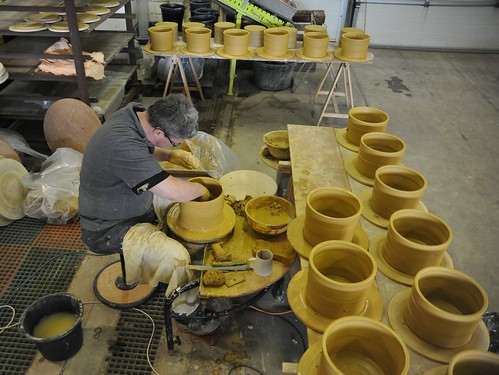Julian Stair is a potter and writer, specialising in commissions and site-specific installations. His work re-examines familiar historical pottery idioms within a contemporary context, and celebrates the social, cultural and multi-sensory aspect of pottery.
Julian has always been interested in early ceramics, particularly those of the Bronze Age. By today’s standards, the technology was limited but, in his view, Bronze Age potters seemed to have a superb sense of design and a refreshing directness in handling clay.
In recent years Julian has been preoccupied with creating cinerary jars and life size sarcophagi, working from his studio in South London and various brick factories. As he reflects ‘there is something elemental about clay; taking that material which symbolizes our origins and making vessels to house the body to return it to the ground creates a wonderful kind of circularity’.
Julian has exhibited internationally over the last 30 years and has work in over 20 public collections including the Victoria & Albert Museum, British Council, American Museum of Art & Design, Hong Kong Museum of Art and the Museum Boijmans van Beuningen, Netherlands. His current exhibition Quietus: The Vessel, Death and the Human Body is on a national tour, showing at Middlesbrough Institute of Modern Art last year, and at The National Museum of Wales, Cardiff and Winchester Cathedral throughout 2013.
In 2002 Julian completed a PhD at the Royal College of Art researching the critical origins of English studio pottery. He is currently Principle Research Fellow at the University of Westminster and a co-investigator on the AHRC funded project Ceramics in the Expanded Field: Behind the Scenes at the Museum.







